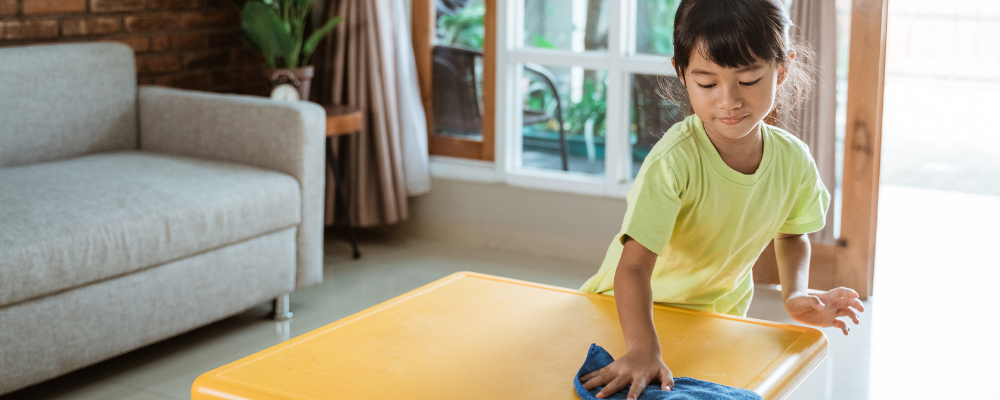Children are naturally curious and eager to be part of the world around them. What might feel like a routine task to an adult—sweeping the floor, folding clothes, washing vegetables—can be an exciting opportunity for a young child. In Montessori education, we recognize these everyday tasks as powerful tools for learning.
At Orrchid Montessori House, we believe that children grow in confidence and independence when they are invited to participate in real-life work. Household chores are not just responsibilities. They are meaningful activities that teach practical skills, boost self-esteem, and develop a child’s sense of belonging.
Let’s explore how simple chores can become enriching learning moments at home.
The Montessori View of “Work”
In a Montessori environment, the term “work” is used to describe all purposeful activity that contributes to learning and development. Children love work when it is meaningful, hands-on, and done with care.
Practical life activities—like pouring water, dusting shelves, or washing a table—are foundational in Montessori classrooms. These activities help children develop motor skills, focus, order, and a sense of responsibility.
At home, involving your child in household chores is a natural extension of Montessori learning.
Why Involve Children in Chores
-
It builds independence. Children feel capable when they can contribute meaningfully.
-
It enhances fine and gross motor skills. Tasks like squeezing a sponge or folding towels improve coordination.
-
It teaches responsibility and cooperation. Children learn that they are part of a community, whether at home or in school.
-
It encourages concentration and order. Repetitive, step-by-step tasks build focus and a sense of accomplishment.
Age-Appropriate Chores Inspired by Montessori
Toddlers (1.5 to 3 years)
-
Putting toys in baskets or bins
-
Wiping spills with a small cloth
-
Watering plants with a tiny watering can
-
Carrying napkins to the table
-
Matching socks from the laundry
Preschoolers (3 to 6 years)
-
Sweeping or mopping with child-sized tools
-
Peeling boiled eggs or bananas
-
Pouring water or juice into a cup
-
Setting the table
-
Feeding pets
-
Folding small towels or cloths
-
Dusting low shelves
Tips for Success
-
Use child-sized tools. Brooms, cloths, and kitchen utensils should be small and manageable for little hands.
-
Slow down and demonstrate. Children learn best when you show them slowly, using simple language.
-
Break tasks into steps. Give one instruction at a time, and let the child focus on mastering each part.
-
Focus on the process, not perfection. It’s okay if the clothes are folded unevenly. What matters is the effort and the learning.
-
Offer encouragement, not correction. Say, “You worked hard to carry all those spoons to the table,” instead of pointing out mistakes.
Turning Chores into Learning Moments
Every chore offers hidden lessons.
-
Sorting laundry teaches categorization and color recognition.
-
Pouring water builds hand-eye coordination and control.
-
Sweeping strengthens gross motor skills and spatial awareness.
-
Cleaning a window develops concentration, patience, and care for the environment.
-
Cooking together introduces math, sequencing, and practical life skills.
When you invite your child into these tasks, you send a powerful message: you are capable, your work matters, and you are a valued member of this home.
Final Thoughts
Montessori is not just a method used in classrooms. It is a way of life that values independence, respect, and purposeful learning. By turning household chores into opportunities for growth, you help your child develop skills that will serve them for life.
At Orrchid Montessori House, we encourage parents to involve children in real-world tasks in age-appropriate ways. With a little patience and a shift in perspective, even the simplest chore can become a joyful moment of learning and connection.

